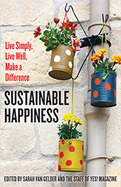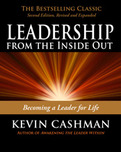BK Blog Post
Making a Science Out of a Simple Sentiment
 Posted by
Jeevan Sivasubramaniam,
Vice President, Editorial,
Berrett-Koehler Publishers Inc.
Posted by
Jeevan Sivasubramaniam,
Vice President, Editorial,
Berrett-Koehler Publishers Inc.
One of the most challenging aspects of shaping a book revolves around getting an author to keep to a simple truth or core message. Whether for fear of appearing simplistic or harboring deep insecurities or (most likely) as a result of academic training, I often find that authors want to make a science out of a sentiment. Even when things appear to be simple at first, inevitably I encounter the thesis that follows.
For example: A simple truth and premise could be something like, "Our minds and modes of thinking are shaped not by what we see and experience, but what we choose to see and experience and not see and experience. To really know how we think, we need to recognize that what we intentionally veer away from says more about us than that which we move towards."
This simple truth can sustain an entire book if the author keeps to that core model but instead, what follows is:
+ The history of choices and seeing
+ The five mental models of choice-making
+ Seven perception approaches to seeing scenarios
+ How we move towards one option or another: determinism vs. supercallafragilisticboringblahblah
+ Why your mom is to blame for what you choose: Freudian concepts of how mothers wreck us
Fine, some slight exaggeration here but the premise remains: almost all authors write books like they wrote their college theses. Academia teaches us to write in a manner that accounts for all aspects of an argument while presenting several options, counter-arguments, historical contexts, and other things equally thrilling. The problem here is that no one wants to read a thesis except for that one snotty professor you had in college who smelled like wet tweed and probably cried himself to sleep every night in his bed. Alone. (Professor J--if you are reading this, yes, I mean you.)
Readers want effective solutions and ideas they can remember and recall, not multifaceted, tangential arguments that could be recorded and played back to prisoners in Guantanamo to break them. Stick to the main premise and don't worry if it doesn't seem complex enough--no law exists against short, to-the-point books that make a single, solid point. Do this: Make a list of the three most important truths you have learned in life and write them down. Now, I will wager anything that each of the truths you wrote down takes up no more than a single sentence. See that? Profound truths that took you decades to learn can be just that short, and it doesn't make them any less meaningful. Do the same with your writing.






